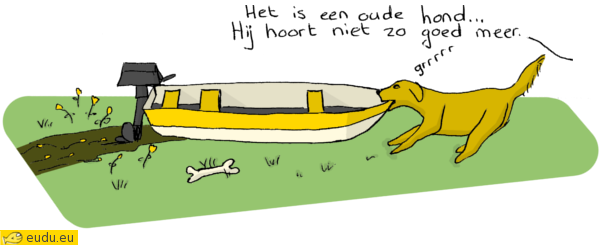Spelling: long and short vowels
The Dutch language has long and short vowels. When do we write single letters (a, l, ...) and when double (aa, ll, ...)?
The long vowels are:aa, ee, oo, uu and ie
The short vowels are:a, e, o, u and i
Rule: A vowel at the end of a syllable automatically becomes long.
This means that the plural of boot is not boo-ten, but it's boten (bo-ten).
The 2nd o isn't necessary.
In the plural form of bot, the short o may not be
at the end of the vowel, as it would automatically become long.
By adding an extra t, we can avoid this problem: the o remains short:
één boot, twee boten (bo-ten)
één bot, twee botten (bot-ten)
één maan, twee manen (ma-nen)
één man, twee mannen (man-nen)
één boom, twee bomen (bo-men)
één bom, twee bommen (bom-men)
één peen, twee penen (pe-nen)
één pen, twee pennen (pen-nen)
één dier, twee dieren (die-ren)
één ding, twee dingen (din-gen)
ik maak, wij maken (ma-ken)
ik pak, wij pakken (pak-ken)
ik bestuur, wij besturen (be-stu-ren)
ik rust, wij rusten (rus-ten)

 b
b b
b m
m m
m b
b b
b p
p p
p